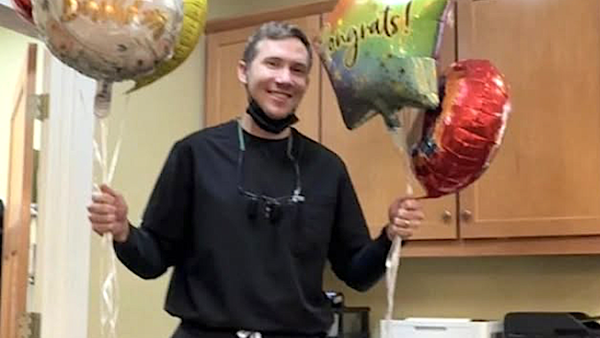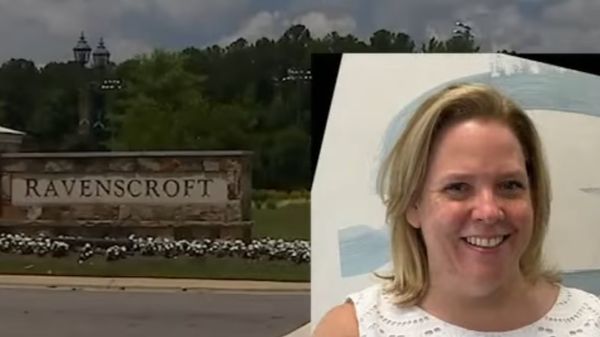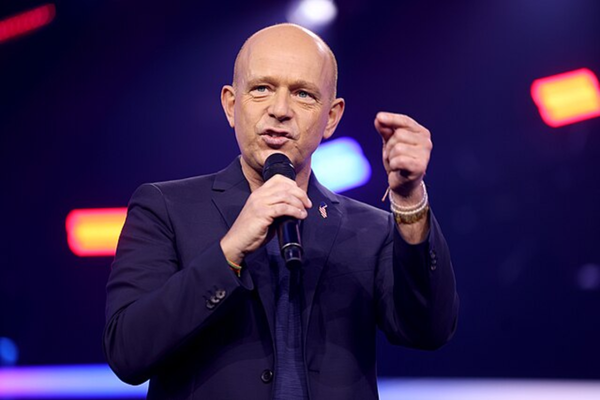For Liverpool owners Fenway Sports Group, the potential for outside investment into the football club remains.
FSG principal John Henry ruled out a full sale of the Reds back in February after it emerged in November last year that it was something under consideration, while Henry reaffirmed FSG’s Liverpool commitment during an exclusive interview with the ECHO in March.
The search for investment, well-placed sources have said, hasn’t moved too far from where it was when Henry made those comments, with FSG having whittled down some interested parties and had dialogue but not moved significantly forward in terms of formalising any interest.
There are a few factors at play, including just how much the club is worth in the eyes of the Reds owners, with the potential sale of Manchester United likely to provide a clearer guide for both prospective investors and club owners as to how much other assets may be worth.
READ MORE: Jordan Henderson has one thing left to achieve before leaving Liverpool
READ MORE: Klopp could repeat transfer trick and sign Levi Colwill alternative after trial
There have been a number of linked parties when it comes to who could take a slice of equity in the Reds, although the decision to sell a portion of the club is by no means cut and dried. Among those linked during the past nine months, erroneously or otherwise have been the likes of the Qatar Investment Authority, existing FSG stakeholders RedBird Capital Partners, Mukesh Ambani and Harris Blitzer Sports & Entertainment.
FSG don’t need to sell a portion of the business and the ability to act in the transfer market is not predicated upon them doing so. What is a consideration, however, is bringing in scalable capital from a firm that can help them grow revenues and offer expertise and scale that might not be as abundantly present right now. With European football seeing a valuation boom and media rights and content now more important than ever, with an increasingly global audience and new markets such as the USA, India and the Middle East coming on board in a big way, there is an ability for major clubs to become rights holders and turn themselves into so-called ‘mini-Disneys’ with a number of facets to the business and greater ownership of supply chains and distribution.
Of those linked to an FSG deal, and perhaps the one that makes the most sense given the considerations above, is that of Liberty Media, the £18bn empire that owns Formula One and also the Atlanta Braves. In its ownership of F1, Liberty has seen the global appeal of the sport and its appeal to sponsors boom, thanks in no small part to the popularity of the Netflix series ‘Drive to Survive’.
While there has been no suggestion from sources the ECHO have spoken to that any dialogue has taken place, Liberty CEO Greg Maffei did admit last month that the firm had looked at the Premier League when it comes to a potential investment play.
“I would dispute buying on the cheap", said Maffei, speaking on the Walker Webcast. “We like to buy for a fair price then hopefully build value.
“The demonstrated success of Formula One, we now have - credit them - a reputation sports and others we have talked to, we can replicate that. You mention the Premier League teams; there isn't an asset we haven't looked at.
“That doesn't mean we've been ready to buy them all but we look at everything because we do think sports in general is attractive, we do think there are upsides and do think those things that management teams have taught up can help apply perhaps in other sports situations.”
While such investment may seem like a move in sync with the direction of travel for the modern game, 24 years ago today marked the first foray for the Reds into partnering with a media firm.
On July 13, 1999, Granada announced that they had bought a 9.9 per cent stake in the Reds, a move that made them the British television company to do such a deal with a football club. The deal, worth £22million to Liverpool, was designed to pave the way for the Merseyside club to launch its own dedicated television channel - LFC TV.
But Granada's collaboration had another motive. By becoming financially associated with the club, the company wanted to act as Liverpool's agents when it came to negotiating future television rights. Existing rights-holders BSKyB had been blocked in an attempt to buy Manchester United for £600m by the Monopolies and Mergers Commission, three months earlier. But Granada, who already had a 30 per cent stake in the Old Trafford club's own television channel MUTV, had eyed the potential to make serious money from both clubs should a restrictive practices court ruling force the then-called Premiership to halt selling television rights for the league as a collective.
If the ruling went in their favour, Granada would be almost certain to be able to win the rights to showing Liverpool's matches themselves, a plan that had been encouraged by a deal Barcelona had done with Spanish cable company Via Digital that netted the Catalan giants £254m over five years.
As reported by The Independent at the time, Steve Morrison, chief executive of Granada Media Group, said: "We're delighted to use our expertise to help build up Liverpool FC's commercial value and to enhance the brand for its supporters."
Matthew Horsman, media analyst at merchant bank Henderson Crosthwaite agreed. He said: "It makes sense for a media and leisure company to be involved in one of the biggest leisure pursuits in the country and one of the most valuable media properties."
The deal would see Granada take control of a number of commercial issues for Liverpool, including publishing, electronic media rights and merchandising. As a minority shareholder, it also ensured that chairman David Moores remained in overall control of the club, with his stake reduced from 58 per cent to 51 per cent.
Mr Moores said: "With the increased capital strength and wealth of commercial expertise the partnership brings, I am confident that together we will develop the Liverpool FC brand into a world leader. Most importantly, the partnership will help bring success on the field which will always be our number one priority."
The £22million that Granada paid had been earmarked solely for team development, with £20million given to manager Gerard Houllier for transfer spend and the remaining £2million allocated to the club's Academy, as they looked to produced the next Robbie Fowler or Michael Owen.
The television company owned 50 per cent of the TV digital subscription platform ONdigital, which had positioned itself as a rival to BSkyB. Granada hoped to use its leverage to wrestle the Premiership's broadcast rights away from Sky when they came up for renewal in 2001, but with a finger in the pie at both Liverpool and United, was seemingly in an even better position should it be ruled that clubs could sell the rights for their own matches.
However as things turned out, the Manchester-based company did not achieve the wins that it needed in order to break Sky's stranglehold on the English game.
Just weeks after its share acquisition of Liverpool had been rubber stamped, the Office of Fair Trading (OFT) suffered the embarrassment of a court ruling that Premiership club's collective and exclusive deal with BSkyB was not illegal and could continue. The OFT had brought the case to court at significant expense and Granada's significant growth masterplan appeared to somewhat hinge on it.
Instead, the court ruled in Sky's favour and the Rupert Murdoch-owned company went on to secure a new £1.1bn deal for Premier League rights that was eventually agreed to run for three years, fending off EU competition concerns in the process.
In the absence of any top-flight TV rights, ONdigital was failing and 12 months later rebranded as ITV Digital, launching dedicated sports channel ITV Sport. It bought the rights to Nationwide Football League games for £315m and showed their matches instead.
But by March 2002, ITV Digital had collapsed, still owing a whopping £178.5million to the Football League - money that its member clubs had already accounted for. As Sky acquired the rights for both the Football League and the League Cup at a steal, Granada's dream of becoming the major player in football broadcasting lay in ruin. They still had their share in Liverpool, but the deal was not the commercial success they hoped it would be.
As the Merseyside club continued to lose ground on the sporting and commercial juggernaut that was United, Moores' agreement to sell the club to US businessmen Tom Hicks and George Gillett in 2007 signalled the opportunity for Granada and ITV to exit Liverpool, albeit at a loss.
Having bought their stake in the Reds for £22m, capital growth hopes were given up on as a deal was done to sell the shares onto Hicks and Gillett for £17.4m - an overall loss of £4.6m. But rather than feeling hard done by, ITV bosses appeared relieved just to call time on the deal.
Fast forward 24 years and, at a rather conservative £4bn valuation for the Reds, a 9.9 per cent stake would be worth £396m, a figure almost £100m more than what FSG paid for the whole of the club in 2010. FSG are understood to have looked at figures between 10 and 15 per cent when it comes to an equity sale, although the valuation that they have on the club, especially given the £6bn deal being thrashed out at present for Manchester United, likely means that £4bn figure will be higher in the eyes of Henry and Co.
The ideas behind the Granada deal back in 1999 and what might be of interest in the modern day have some similarities, with greater ownership of rights being at the centre of that and larger control over content. But the Premier League has exploded beyond the expectations of most over the past quarter of a century and valuations of teams have soared through enormous media revenues and the solidified position of the English top flight as the most lucrative league in the world that attracts the most eyeballs.
While linear television may be declining, the opportunities afforded through over-the-top streaming services, to phones, tablets and watches etc, means that there remains a huge upside for media companies when it comes to sports and how to continue to grow its value. Valuations for Premier League clubs, despite the unparalleled global reach, still fall some way short of the valuations for the prime assets in the NFL, with investors banking on the continued direction of travel closing that gap significantly and offering bountiful returns in the future.
While the Granada deal might not have been the ground-breaking partnership that both parties thought it would be, such a strategic move would likely play a lot differently today. Whether or not it is something to be explored remains to be seen, but it certainly has its merits for the club as a business.







